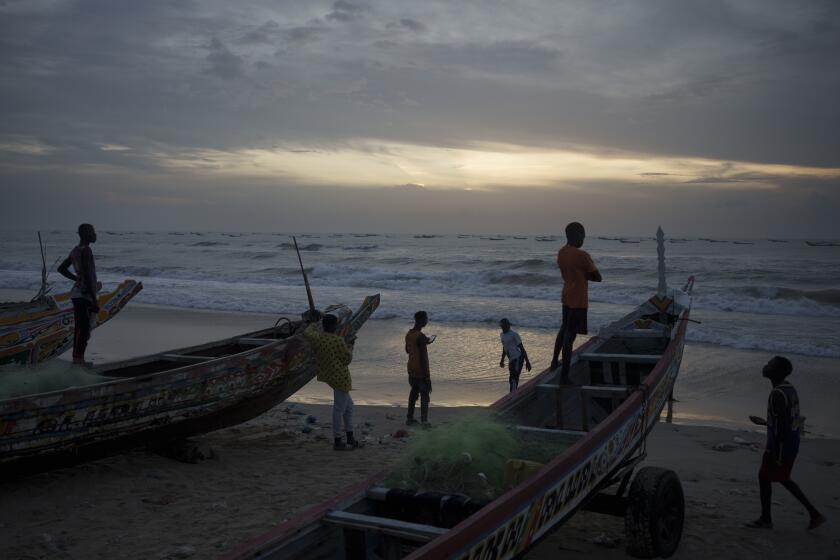Progress in Pakistan
Democracy is messy. In Pakistan, it’s likely to be even messier than usual. But as Winston Churchill noted, it beats the alternatives.
Pakistanis delightfully defied expectations Monday by staging a seemingly free election with a minimum of violence; voters ousted incumbents by the score, and the ruling party quickly accepted defeat. The electoral rebuke brought an uncomfortable outcome for the Bush administration because the biggest loser was President Pervez Musharraf. As recently as last month, senior U.S. officials were insisting that the unpopular strongman was “indispensable” to the so-called global war on terror. Conservatives now warn that the coming political shake-up in Pakistan could bring more chaos that will make liberals nostalgic for the relative stability of Musharraf’s reign. They may be right. Nevertheless, the victory of the Pakistani opposition offers strategic opportunities that the United States should not squander.
First, the U.S. can now demonstrate that it isn’t the fair-weather friend Pakistanis fear, or the patron of any individual leader, but a respectful ally of the Pakistani people. It should reward the country for making the transition to civilian rule by increasing the $300 million it provides in development aid. The U.S. also gives $300 million in direct military aid. Congress has been toying with slashing that, but now isn’t the moment. Musharraf’s successor as army chief of staff, Gen. Ashfaq Kayani, has ordered the military not to meddle in politics -- a welcome change. The U.S. should continue to nurture the military relationship while insisting on transparency to assure that aid is spent on counter-insurgency efforts, not on the Indian border.
Pakistan’s previous civilian governments have proved corrupt and incompetent; this one will need help in improving the country’s dreadful health and education systems, generating more than a few hours of electricity a day, boosting living standards for the poor and instituting anti-corruption programs. That means the pro-democracy Pakistan People’s Party and the nationalist movement of former Prime Minister Nawaz Sharif must be urged to move quickly past political score-settling and work together to produce results for their constituencies. Halfway decent governance is an indispensable element in quelling the rage that feeds extremism.
And speaking of extremism, among those ousted Monday was the pro-Taliban party that has ruled the volatile Northwest Frontier Province since 2002. The Islamists failed to provide either the Sharia law they’d promised the hard-liners or improvements in the lives of everyone else; two secular parties defeated them. The U.S. should find it easier to work with local authorities to spend the $100 million already allocated for the strategic region. Since 9/11, the U.S. has given billions to Musharraf and yet is far more disliked than before. It’s time both countries made a fresh start.
More to Read
Sign up for Essential California
The most important California stories and recommendations in your inbox every morning.
You may occasionally receive promotional content from the Los Angeles Times.










